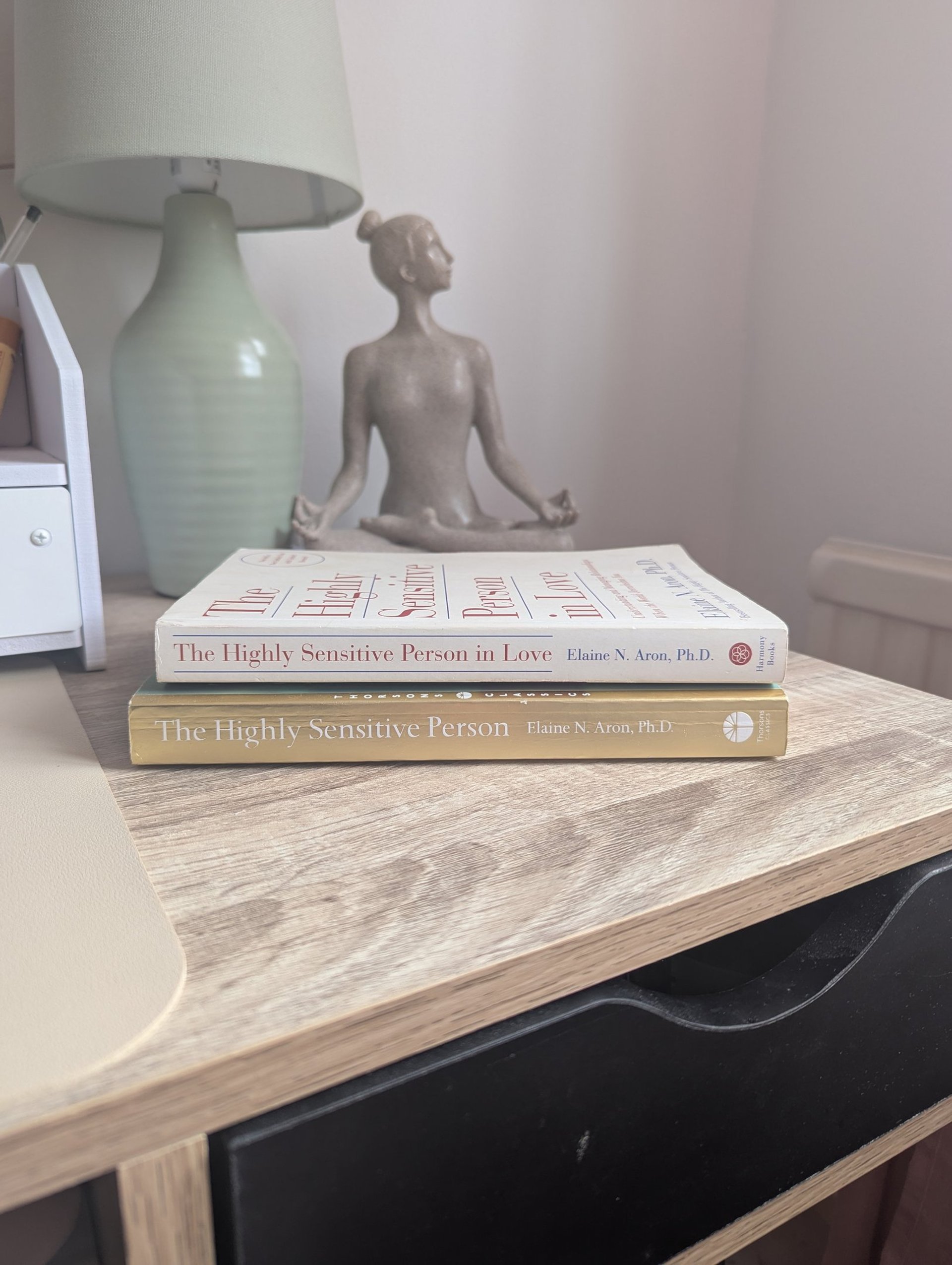
You feel everything — deeply.
Other people’s moods, the energy in a room, the weight of the world,
Maybe you’ve spent years thinking you were too much, too emotional, or just couldn’t cope like everyone else.
But the truth is:
You’re not broken.
You’re probably a Highly Sensitive Person, and that’s a beautiful trait, not a flaw.
What is a Highly Sensitive Person (HSP)?
A Highly Sensitive Person (HSP) is someone with a finely tuned nervous system - meaning you process information deeply, feel emotions intensely, and are more sensitive to subtleties in your environment.
The term was first coined by psychologist Dr. Elaine Aron, whose pioneering research and bestselling book The Highly Sensitive Person has helped millions understand this unique trait.
Being an HSP isn’t a flaw - it’s a temperament shared by around 20% of the population. When understood and supported, it can become one of your greatest strengths.

How do I know if I am a Highly Sensitive Person?
If you’re unsure whether you could be a HSP, here are a few signs:
You feel emotions very deeply (yours and other people’s)
You get overwhelmed in busy environments or with too much stimulation
You need downtime to recover after socialising
Criticism hits you hard, even when it’s well-meaning
You’re deeply moved by art, music, or nature
You often notice things others miss — sounds, smells, tension, detail
You struggle with boundaries, especially in relationships
You tend to overthink or second-guess yourself
If several of these resonate, there’s a good chance you’re a HSP, like me, and many of my clients.
Recommended reading as pictured above: Dr. Elaine N. Aron Ph.D. – The Highly Sensitive Person and The Highly Sensitive Person In Love
What HSP's commonly struggle with:
Anxiety and emotional overwhelm
Burnout from people-pleasing or taking on too much
Trouble setting boundaries without guilt
Low self-esteem or feeling "different"
Avoidance of conflict or visibility
Difficulty letting go of past hurts or critisism
Feeling misunderstood or unseen
Turning to distraction to cope (scrolling, numbing, overthinking)
Now that you know,
What can you do?
The moment you realise you’re an HSP, everything starts to make sense.
But what next?
1. Give yourself permission to be exactly as you are. Sensitivity is not weakness.
2. Start listening to your body’s cues. Your nervous system is asking for spaciousness, not more pressure.
3. Seek support that honours your sensitivity. Healing doesn’t have to be loud, intense, or overwhelming.
Here are a few gentle first steps:
How Hypnotherapy can help HSPs:
A 3 step approach
1. Create Safety in the Body
Hypnotherapy helps calm your overactive nervous system and shift you into a state of rest - where healing and insight become possible. It creates a gentle space to breathe again.
2. Rewire Limiting Beliefs
Many HSPs carry subconscious stories like “I’m too much” or “I have to keep the peace.” In hypnosis, we work with your subconscious mind to gently rewrite those old beliefs and replace them with self-trust, confidence, and worth.
3. Strengthen Inner Boundaries
We use visualisation, subconscious suggestion, and inner child healing to help you feel emotionally grounded, resilient, and more able to say no without guilt - even when the world around you stays busy.






You don’t need to “toughen up” to feel better.
You just need tools that meet you where you are — softly, safely, and with compassion.
I’d love to support you.
If this resonates, you're warmly invited to work with me.
Through Hypnotherapy, let this be the beginning of the journey of coming home to yourself.
